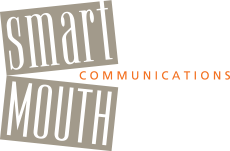Your mother really did have your best interests in mind. Her nagging reminders may have seemed repetitive or unnecessary at the time, but they may actually be some of your best tips for making an effective presentation.
Here’s a quick review of your mom’s best reminders. Think about how you might use them to run a better staff meeting, deliver a better speech, conduct a better sales call, or just make a better impression in your business life.
Use your head. Think before you talk. If you have the benefit of even a little bit of time to plan and prepare ahead, it will serve you well. Think in advance about your audience, think about your objectives, and think about what you want to convey. Write it out in long form, if you need to, or jot down bullet-pointed message points. Being prepared will give you the confidence you need to deliver the substance of your message in the most effective manner.
1 + 1 = 2. Keep it simple. Make sure what you are saying is clear, easy to follow, and that it makes sense. Be aware that your audience, no matter how big or small, has a limited attention span. They may or may not be interested in, or able to sit through, a long narrative full of details or complex information. Follow this simple equation: Tell them what you’re going to tell them; then tell them; then recap by telling them what you told them. And keep it simple.
Don’t exaggerate. Tell the truth, stick to the facts, and – above all – talk only about what you know. Venturing to guess, speculate, or hypothesize is like stepping into verbal quicksand. You may never be able to pull yourself back out, and you’ll just find yourself sinking deeper and deeper. Sticking to what you know keeps you in control of your message and makes for a more commanding delivery.
Stand up straight. Good posture, whether you are sitting or standing, not only looks better, but also enhances your ability to breathe, which is critical to your ability to speak well. Standing up straight also bolsters your presence and gives the impression that you’re in charge, which ultimately gets you the attention you need and deserve.
Slow down. Take your time. It’s okay to breathe, to pause, to take a moment and collect your thoughts. This is particularly important when you are faced with spontaneous questions, as you might be in a media interview or during the Q&A portion of a presentation. If you happen to be at a podium with a microphone, speaking slowly and clearly avoids audio feedback and ensures that your audience is able to hear every word of your presentation.
Stop fidgeting. Take your fingers out of your mouth. Don’t play with your hair. Quit twirling your ring. Find someplace for your hands, whether it’s holding a pen, a pointer, or your papers. Or you may just want to fold them in front of you. Bob Dole always spoke holding a pen in the hand of his disabled arm to avoid having that side look weak or unusable. For many of us, holding a pen during a presentation provides a similar supporting benefit, in that it gives our hand or hands something useful to hold onto.
Remember your manners. Be gracious. Remember to say please, thank you, and excuse me, when appropriate. If you have been invited to speak or make a presentation, remember to thank your hosts and acknowledge any co-presenters.
Wait your turn. During Q&A sessions, or on panel discussions, the urge to interrupt or speak over someone can be overwhelming when there’s an important point to be made. You must wait your turn, though, no matter how urgent your point or counterpoint. You might think you politely cutting in, but you run the risk of the audience remembering the act of your interruption more than the content of your point.
Don’t overstay your welcome. If you are invited to speak, be sure you know how much time you have, and stick to it. If you are speaking in a more open-ended forum – such as conducting a meeting or being interviewed by a reporter or making a new business presentation – remember that less is more. Be succinct.
Work on knowing what points you need to get across, work on making them powerful, and then work on stopping. Be aware that most people have short attention spans, so your window of opportunity for making a point is usually quite limited.
Do your best. In the end, this is all you can ask of yourself. And, it’s all your mother ever asked of you too.
- New Agey Advice for Nervousness - November 3, 2022
- Your Passion Can Go a Long Way Toward Building Connection - October 10, 2022
- Keep stage fright a private matter while you’re speaking on a public stage! - August 11, 2022



